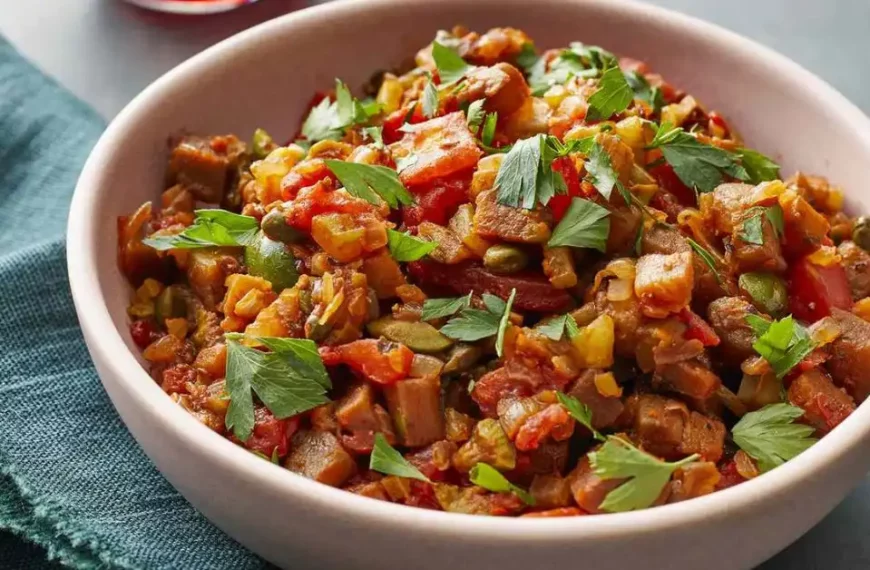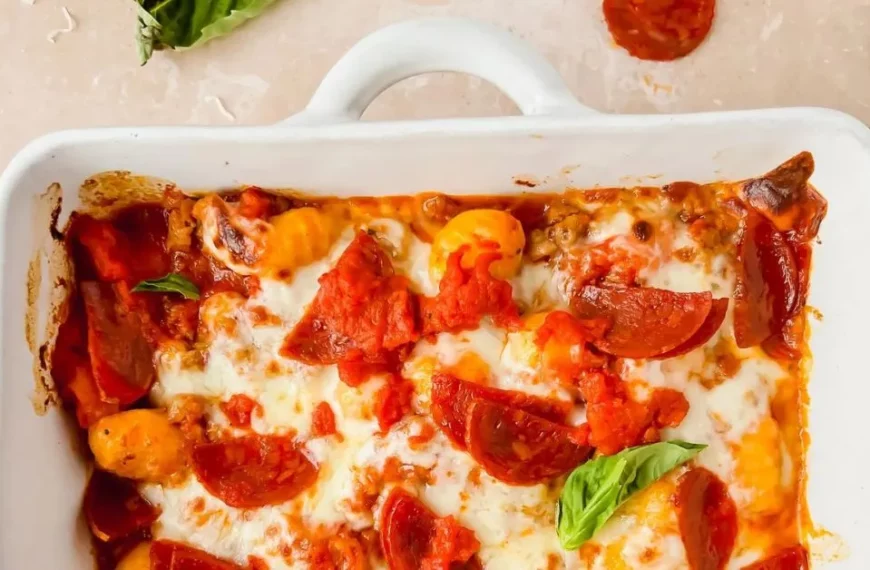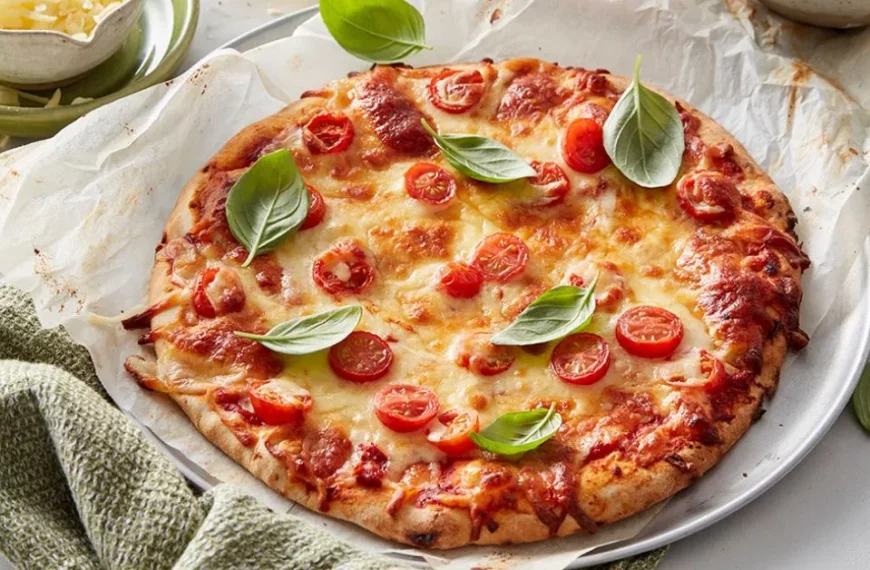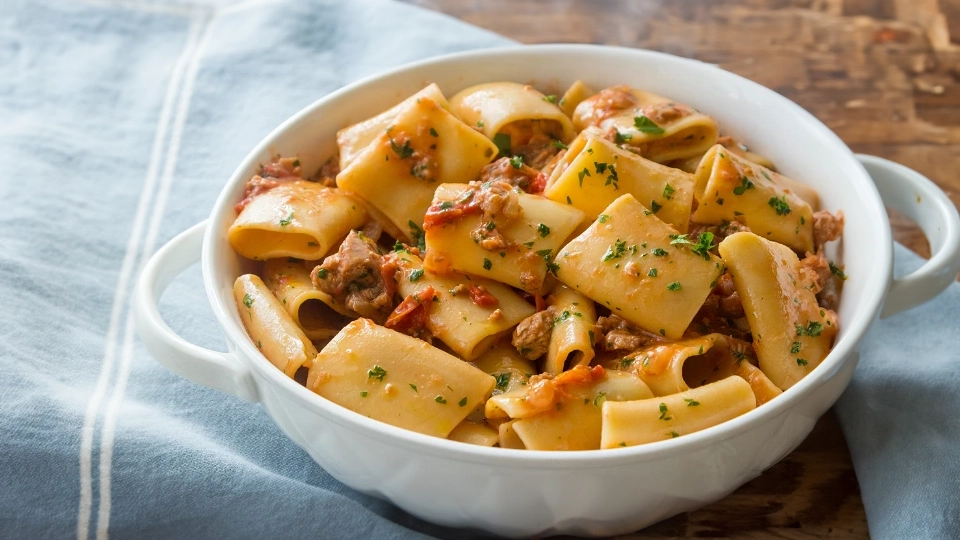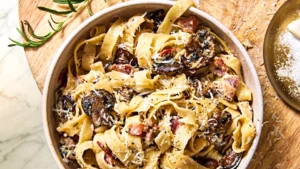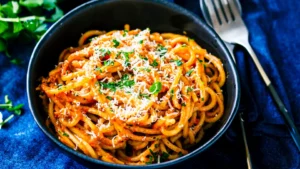There’s something intimate and ancient about the consumption of olives. Whether it’s the tantalizing smell of olive oil in a sizzling pan or the delicate balance of brine and butteriness in a perfectly prepared olive dish, these little fruits carry a mighty history. And among the countless ways to enjoy olives, Olive Ascolane stands out — it’s a true gem of Central Italy, an intricate blend of flavors encapsulated within a humble and unassuming olive.
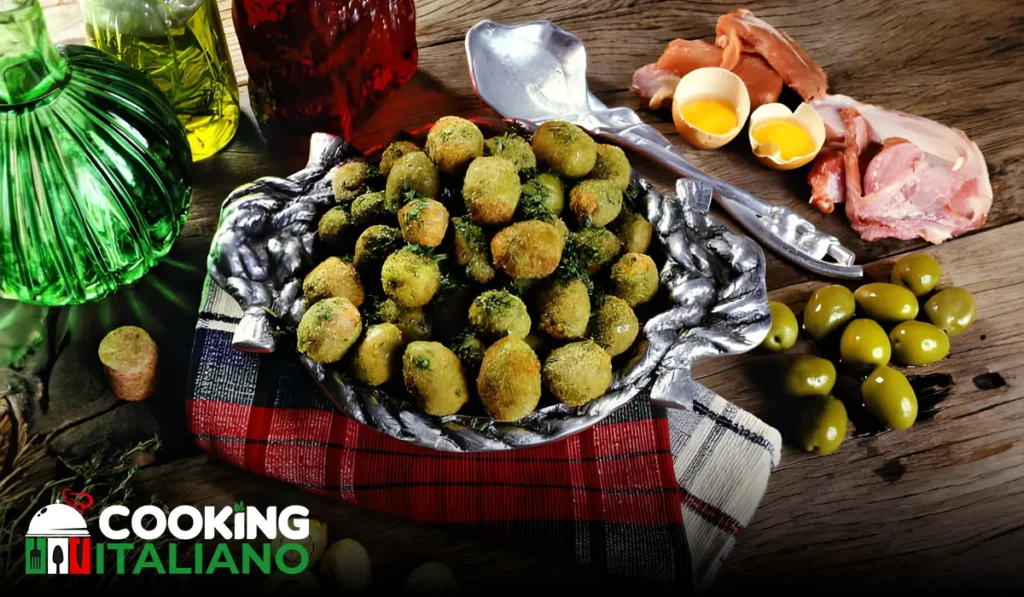
In the clattering kitchen of memories, I can always recall the festive season, where the process of making Olive Ascolane or Winter Panzanella was a cherished family tradition. Every year, my grandmother and I would set out to the olive groves, bringing back a bounty of olives to be painstakingly transformed into these delicious morsels. The preparation itself was an event — a coming together of generations and a celebration of the art of good food.
For those who approach cooking with a mix of reverence and joy, I invite you to join me on a culinary adventure that will lead you to infuse the spirit of Italian feasting into your home. The following recipe and guide are more than instructions; they’re an heirloom, to be savored and shared with family and friends.
Olive Ascolane

Ingredients
The heart and soul of a dish lie in its ingredients, and Olive Ascolane is no exception. To create these delightful morsels, you’ll need the following:
- Olives: 2 pounds of green olives, large
- For the Filling:
- Veal Mince: 14 ounces, lean
- Pork Mince: 2 ounces, fat included
- Butter: 2 tablespoons
- Onions: 1 large, finely chopped
- Carrots: 1 large, finely chopped
- Celery Stalks: 2, finely chopped
- White Wine: A glass
- Milk: A glass
- Nutmeg: A pinch
- Breadcrumbs: A handful
- Eggs: 3
- Parmesan Cheese: 3 tablespoons, grated
- Marjoram: A few leaves, chopped
- Salt and Pepper: To taste
- For Coating:
- Flour
- Eggs (beaten)
- Breadcrumbs
- For Frying:
- Vegetable Oil
- Lemon Zest: Optional, to serve
Instructions
Preparing Olive Ascolane is a labor of love — one that rewards with every bite. Here’s how you make them:
Step 1: Preparing the Olives
Begin by scoring the olives with a paring knife, ensuring not to pierce the pit. This scoring allows the seasonings to better penetrate the olive, making your indulgence all the more flavorful.
Step 2: Making the Filling
In a pan, mix the two types of meat. Add in the butter and set the heat to medium. As the butter melts, stir the meat around, allowing it to brown slightly. Now, add the onions and stir until translucent. Then, add the carrots and celery, cooking until softened.
Step 3: The Simmering Stage
Pour in the wine and milk, and adjust the heat to a gentle simmer. Gradually add in the nutmeg, allowing the flavors to meld. Once the meat has soaked up the liquids and developed a rich, complex profile, set it aside to cool slightly.
Step 4: Blending In the Goodness
Transfer the meat to a large mixing bowl. Add in the breadcrumbs, eggs, Parmesan, marjoram, salt, and pepper. Mix the ingredients thoroughly until they come together in a cohesive blend of colors and aromas.
Step 5: Stuffing the Olives
With a small spoon or pastry bag, fill each olive with the meat mixture. This step requires patience and precision, but the results are worth every moment spent.
Step 6: Coating for Crispness
Prepare three shallow dishes — one each with flour, beaten eggs, and breadcrumbs. Roll each stuffed olive first in the flour, then dip in the egg, and finally roll in the breadcrumbs to ensure a crispy, golden exterior.
Step 7: Bringing Them to Life
Heat the oil and fry the olives in batches until golden brown and crisp. Allow them to cool on a rack or paper towels to drain excess oil. The aromas will be tantalizing and the satisfaction of a job well done is just the beginning.
Step 8: The Finishing Touch
Once cooled, if desired, sprinkle with lemon zest before serving. This adds a lovely, bright note to the savory tones that these olives are known for.

DID YOU MAKE THIS RECIPE?
Tag @amcookingitaliano on Instagram and hashtag it #amcookingitaliano!
Tips for Customization
Every cook’s hands carry their own secret flavors, and Olive Ascolane are no exception. Here are a few tips to add your personal stamp to this classic recipe:
- Play with the Blend: Experiment with the meat filling. You can try different ratios of veal to pork, or even substitutes like chicken or turkey for a lighter version.
- Veggie Variations: Add finely chopped spinach, parsley, or other herbs to the meat mixture for a burst of freshness and color.
- Spice It Up: For those who love a bit of heat, a pinch of cayenne or paprika in the meat mixture can be a great addition.
- Cheese Choices: While Parmesan is the traditional go-to, why not try a sharp cheddar or a creamy taleggio for an interesting twist?
- Breading Blends: Mix up your breadcrumb coating with different textures and flavors. Panko breadcrumbs can bring an extra crunch, and seasoning the breadcrumbs with mixed herbs can add depth.
How to Store Your Olive Ascolane
The good news about Olive Ascolane is that they can be stored for a few days in an airtight container in the refrigerator. To ensure that they retain their texture and flavor, refrigerate them as soon as they’ve reached room temperature after frying. You can then reheat them in the oven until they’re warm and crispy again — just like fresh from the fryer!
Conclusion
The process of making Olive Ascolane is more than just a recipe — it’s an experience. It’s a connection to the past, a meaningful ritual, and an avenue to creative expression. By preparing this delicacy, you not only fill your stomach but also your home with the warmth and aroma of a time-honored tradition.
In a world that spins ever faster, there’s something profoundly calming about rituals like this — they ground us, anchor us to our heritage, and remind us to cherish the simple pleasures that life offers. This hand-me-down recipe, rich with the essence of family and tradition, is my gift to you, and I hope it blossoms into a treasured tradition in your own home.
FAQs
What kind of olives are traditionally used for Olive Ascolane?
Typically, large green olives with a firm texture that can stand up to the cooking process are used. Varieties like the Ascolana Tenera are the gold standard, but you can use any large green olive you have at hand.
Why do you score the olives before filling them?
Scoring the olives ensures that the flavors from the filling penetrate the flesh of the olive, imparting more flavor to every bite.
Can I bake the olives instead of frying?
While tradition calls for frying, you can definitely bake them for a healthier version. Place them on a baking sheet lined with parchment paper, drizzle with olive oil, and bake in a preheated oven at 375°F until golden brown and crispy, turning once.
What is the best way to present Olive Ascolane?
Simple is key. Arrange them on a platter and serve, or place them on a bed of fresh herbs for a more elegant presentation. You may also choose to present them with lemon wedges for diners to squeeze over just before they indulge.




